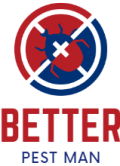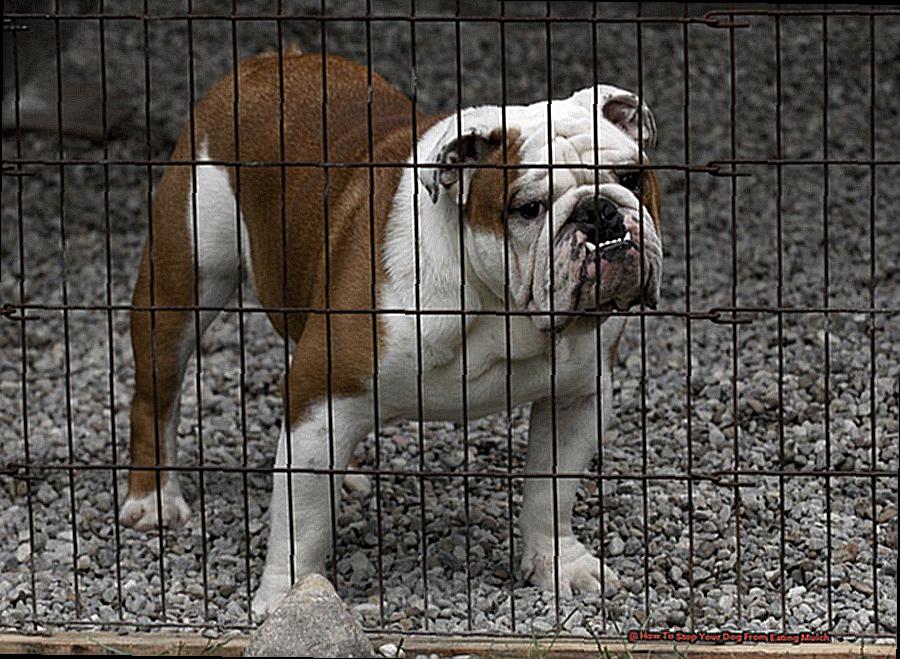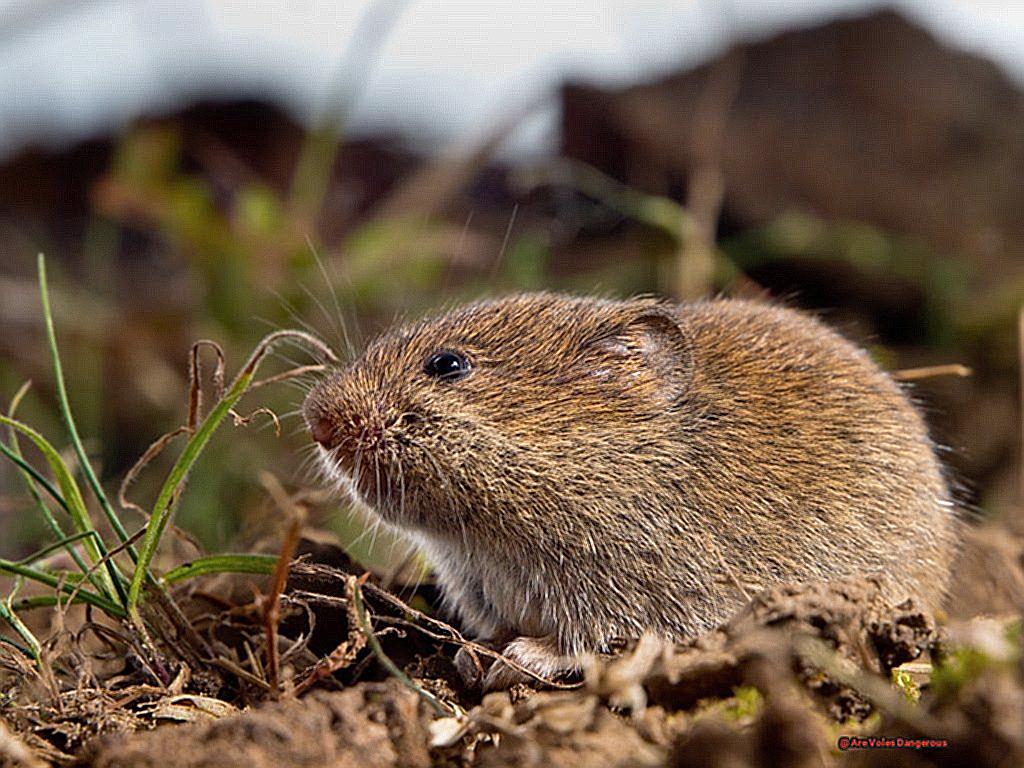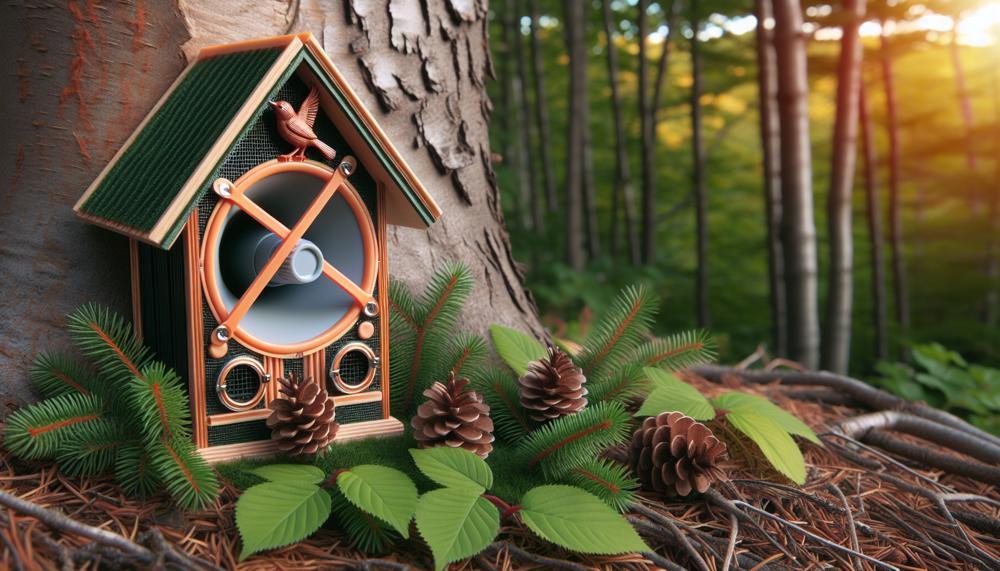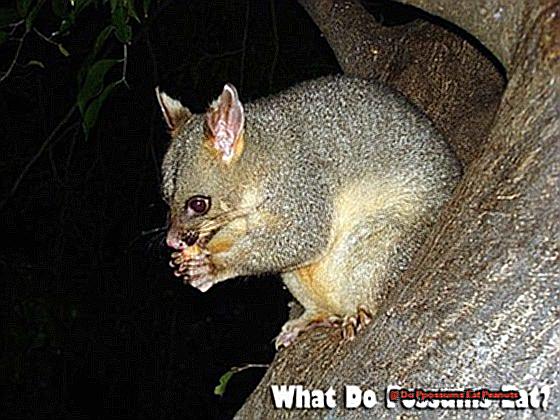Imagine this scenario: you’re on a peaceful stroll with your beloved furry companion, enjoying the fresh air and beautiful scenery. Suddenly, your dog comes to a halt and starts chomping down on the mulch lining someone’s garden.
As a responsible pet owner, you know that this behavior is not only unsightly but also potentially harmful for your canine friend. But why do dogs have such a strong urge to eat mulch? And more importantly, how can you put an end to it?
In this blog post, we will delve into the reasons behind this common habit among dogs and provide practical tips on how to prevent it. From understanding the underlying causes to implementing effective training techniques, we’ve got you covered.
So, grab your favorite cup of coffee or tea and let’s dive into the world of dogs and mulch.
Table of Contents
What is Mulch and Is it Bad for Dogs?
Mulch is a layer of material, such as wood chips, leaves, or bark, that is placed on top of soil to protect and enhance the conditions for plants and soil. Despite its benefits for gardens and landscapes, it can pose a threat to dogs if consumed.
There are various reasons why mulch can be hazardous to dogs:
- Toxic Ingredients: Many types of mulch contain harmful ingredients, such as pesticides and chemicals used to preserve the wood. If ingested in large amounts, these substances can cause harm to dogs.
- Sharp Pieces: Certain mulch may have pieces with sharp edges that can cause cuts and injuries to a dog’s paws, mouth, and intestines if swallowed.
- Cocoa Bean Mulch: The most dangerous type of mulch for dogs is cocoa bean mulch, which is made from the shells of cocoa beans. This mulch contains caffeine and theobromine, both of which are toxic to dogs and can lead to serious health complications if consumed.
- Digestive Obstruction: Ingesting a large amount of mulch can cause a digestive obstruction in dogs. This means that the mulch blocks their digestive tract, preventing food from passing through and causing discomfort, vomiting, and potentially life-threatening complications.
In conclusion, while mulch offers numerous benefits for gardens and landscapes, it is crucial for dog owners to be aware of its potential dangers.
What Happens if My Dog Eats Mulch?
When a dog consumes mulch, there are various potential health hazards that can arise. These include intestinal obstruction, toxicity, and behavioral concerns. Intestinal obstruction happens when the dog’s digestive system struggles to break down the mulch, resulting in an obstruction in their intestines. This can be life-threatening if not addressed promptly.
Some types of mulch may also contain poisonous substances, like cocoa bean shells or particular types of wood, which can cause symptoms such as vomiting, diarrhea and weakness.
Additionally, dogs may develop a tendency to eat mulch out of boredom or pica, which can lead to long-term health problems. It is crucial for pet owners to be aware of these potential risks and take necessary precautions to ensure the safety of their canine companions.
Why Do Dogs Chew Wood and Other Inedible Things?
There are several potential reasons behind a dog’s inclination to gnaw on wood and other objects that are not meant to be eaten. Some of these reasons include curiosity, boredom, anxiety, and natural instincts.
- Curiosity: Similar to toddlers, puppies explore their surroundings by putting objects in their mouths. This chewing behavior is a normal part of their development as they discover different textures and items around them.
- Boredom: Dogs that spend long periods alone may resort to chewing as a way to combat boredom. This is especially common in breeds known for their high energy levels, such as Labrador Retrievers or Border Collies.
- Anxiety: Just like humans, dogs can experience anxiety and may turn to destructive behaviors like chewing to cope with it. Separation anxiety, fear of loud noises, or changes in routine can all contribute to a dog’s anxious behavior.
- Natural Instincts: It is natural for dogs to chew on objects as a way to keep their teeth clean and relieve stress. In the wild, they would chew on bones or sticks for this purpose.
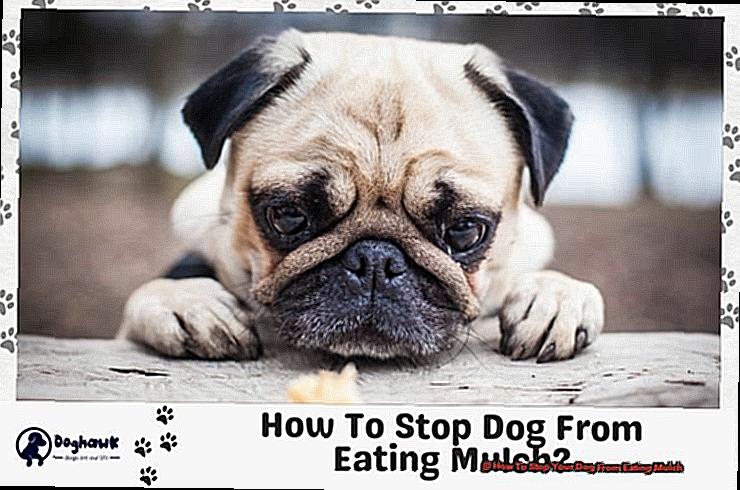
To prevent this behavior, it is important for dog owners to provide alternative chew toys and engage their dogs in activities that stimulate their minds. It is also crucial to ensure your dog is receiving a balanced diet to address any nutritional deficiencies that may contribute to their chewing behavior.
If your dog has ingested wood or other inedible items, it is important to closely monitor them for any symptoms such as vomiting or loss of appetite. If you notice any concerning signs, seek veterinary care immediately.
Tips for Stopping Your Dog From Eating Mulch
Dogs possess an inherent instinct to gnaw on objects, including mulch. Still, this behavior can be detrimental to their well-being. To prevent your dog from consuming mulch in your yard, here are some effective tips:
- Train Your Dog: Utilizing positive and negative reinforcement techniques, train your dog not to eat mulch. Positive reinforcement methods could involve rewarding your dog with treats and praise when it stays away from the mulch, while negative reinforcement can include a firm “no” or spritz of water when it attempts to eat the mulch.
- Utilize Anti-Chew Sprays: These sprays are specially designed to discourage dogs from chewing on specific items by leaving a bitter taste in their mouth. You can spray these on areas of mulch to deter your dog from consuming them.
- Scold and Remove: If your dog manages to consume some mulch, immediately scold it and remove the mulch from its mouth. This will help reinforce the idea that eating mulch is unacceptable behavior.
- Restrict Access: By keeping your dog fenced off or away from your mulch piles, you can prevent it from getting close enough to chew on the mulch. You can also completely remove the mulch from areas where your dog has access.
- Offer Chewing Alternatives: Dogs have a natural urge to gnaw, so providing safe and enjoyable chewing toys can satisfy this urge without them turning to the mulch in your yard.
Training, utilizing deterrents, restricting access, and providing alternatives are all effective ways to prevent your canine companion from consuming mulch in your yard.
Alternatives to Mulch
There are a variety of effective and non-traditional mulching options to enhance your garden’s beauty and safety for your dog. Let’s explore some alternatives to traditional mulch that can serve both purposes:
- Rocks, gravel, or pebbles: These visually appealing options not only add aesthetic appeal to your garden, but also effectively suppress weed growth.
- Pumice rock: This lightweight alternative promotes soil health and drainage, making it an ideal choice for your garden.
- Cocoa shell mulch: Along with serving as a protective barrier, this option adds a pleasant aroma to your garden.
- Pine cones: Easily sourced from the forest floor, pine cones can be used whole or broken up to serve as mulch.
- Rubber mulch: Made from recycled tires, this option insulates soil temperature and hinders unwanted plant growth.
| Mulching Option | Advantages | Safety Precautions |
| Rocks, gravel, or pebbles | Suppresses weed growth, visually appealing | May pose a choking hazard for small dogs if consumed |
| Pumice rock | Promotes soil health and drainage | N/A |
| Cocoa shell mulch | Serves as a protective barrier, adds pleasant scent | Can be toxic to dogs if consumed in large quantities Monitor dog’s behavior and consult with veterinarian if concerned |
| Pine cones | Easily sourced, can be used whole or broken up | May cause irritation if stepped on by bare feet |
| Rubber mulch | Insulates soil temperature, reduces unwanted plant growth | May contain chemicals from recycled tires that can be harmful to dogs if consumed in large quantities Monitor dog’s behavior and consult with veterinarian if concerned |
As you can see, these unique alternatives offer a range of benefits for your garden while considering potential safety concerns for your furry friend. It’s essential to keep an eye on your dog’s behavior and consult with a veterinarian if any concerns arise.
Conclusion
In conclusion, as a responsible pet owner, understanding the reasons behind your dog’s mulch-eating habit and its potential dangers is crucial.
From toxic ingredients to digestive obstruction, there are numerous risks involved in this behavior. However, with effective training techniques such as positive reinforcement and anti-chew sprays, you can discourage your dog from consuming mulch.
It is also important to provide alternative options for satisfying their chewing instincts and be mindful of their diet to address any nutritional deficiencies that may contribute to this behavior.
Moreover, considering alternative mulching options like rocks, pumice rock, cocoa shell mulch, pine cones, and rubber mulch not only enhances the beauty of your garden but also ensures the safety of your furry companion.
